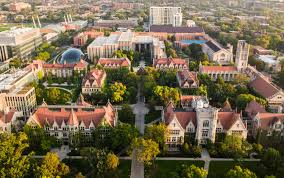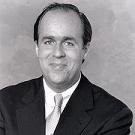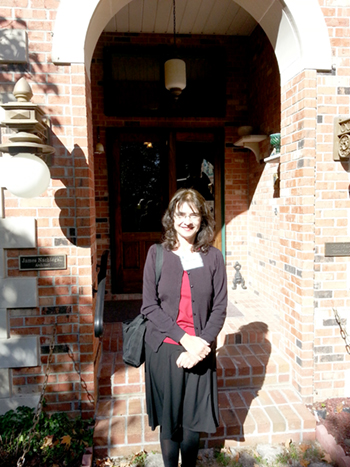 The opportunities for control and dictatorship have only grown during the pandemic. Here are some suggestions for what a campus should do (with cues from Alexis de Tocqueville). Guest Column by Matthew G. Andersson, University of Chicago Booth School of Business, Class of 1996 (MBA), Posted August 24, 2020 (by Mary Grabar)
The opportunities for control and dictatorship have only grown during the pandemic. Here are some suggestions for what a campus should do (with cues from Alexis de Tocqueville). Guest Column by Matthew G. Andersson, University of Chicago Booth School of Business, Class of 1996 (MBA), Posted August 24, 2020 (by Mary Grabar)
Is the Covid-19 phenomenon sufficiently understood, and the full spectrum of its potential risks such that the University of Chicago’s plans to implement a comprehensive, officially re-engineered physical campus environment justified?
While there is much public information that may seem to support all the measures that the University is planning to take—a maze of corporate and social controls, including plans to “de-densify spaces,” enforce “capacity limits and distancing requirements,” based on protocols of “spatial configuration guidelines,” and enact “gathering parameters, [including] overall density of the campus”--this kind of effectively authoritarian response, very expensive and reflecting corporate liability preoccupations, may be unnecessary, or simply excessive.
There is also the practical dimension of just how much “social control” any university can legitimately maintain over students, faculty, staff and visitors. Most of the University’s plans revolve around the concept of “social distancing” by blanketing the campus with signs that issue warnings and instructions, and physical dividers and constructed corridors that segregate and channel the movements and broad socialization of the campus “colony” (some social scientists and mathematicians call this “ant farming”). This may comply with an institution’s corporate risk preoccupations in liability management (like McDonalds re-printing their coffee cups that warn consumers that their beverage is hot), but is it necessary to treat thousands of intelligent college students as if they were back in grade school with their every move controlled by rules and directions? This is the anti-Aristotelean virtue ethic of character development based on individual choice. Such corporate social engineering is precisely a “de-virtue” exercise against autonomous, voluntary, self-aware maturation. Moreover, what does such enforced social segregation do, to amplify the already deep dependence on, and effects from, electronic devices and media, rather than more direct, free and open, personal communication?
 This communication and free interaction is also at the core of what an actual democracy consists of. As French political scientist Alex de Tocqueville observed in Democracy in America: “The most natural privilege of man, next to the right of acting for himself, is that of combining his exertions with those of his fellow-creatures, and of acting in common with them. I am therefore led to conclude that the right of association is almost as inalienable as the right of personal liberty. No legislator can attack it without impairing the very foundations of society.” Students are otherwise smart enough to collectively manage their own needs, preferences and relationships, and certainly in the “distancing” dimension alone, there is no shortage of private space in nearly all university classrooms, labs, libraries, and even food courts. Residence preferences may be the most complicated problem to solve, but “de-densifying” university residential facilities is pretty straightforward, not unlike simply “blocking out” the middle seat on an airline. Outside University-run facilities, students, and the market, will be free to make their own choices.
This communication and free interaction is also at the core of what an actual democracy consists of. As French political scientist Alex de Tocqueville observed in Democracy in America: “The most natural privilege of man, next to the right of acting for himself, is that of combining his exertions with those of his fellow-creatures, and of acting in common with them. I am therefore led to conclude that the right of association is almost as inalienable as the right of personal liberty. No legislator can attack it without impairing the very foundations of society.” Students are otherwise smart enough to collectively manage their own needs, preferences and relationships, and certainly in the “distancing” dimension alone, there is no shortage of private space in nearly all university classrooms, labs, libraries, and even food courts. Residence preferences may be the most complicated problem to solve, but “de-densifying” university residential facilities is pretty straightforward, not unlike simply “blocking out” the middle seat on an airline. Outside University-run facilities, students, and the market, will be free to make their own choices.
This may otherwise represent an excellent opportunity to issue a simple ‘health’ version of the free-speech Chicago Principles statement to all arriving students, that clearly outlines expected behaviors, and then rests on trusting in, and gently guiding, or “nudging” students to self-regulate, rather than assuming that they need to be prodded, corralled and herded. A Chicago Principles approach also favors exactly the intellectual independence and maturity that universities hold out as their highest pedagogic development mission.
The "Chicago Principles"
Borrowing the free speech “Chicago Principles” approach to health guidelines, assumes however, that the punitive measures of that document, including sanctions such as probation, scholarship penalties or even expulsion, are not combined with student paid “health monitors” or “health ambassadors” and contact tracers, to intimidate, harass or threaten students. It also assumes that it is advisory and not contractual. Such extreme contracting measures are already being adopted by administration at Duke, Penn State, Yale, Texas A&M, Cornell, Miami, Vanderbilt, NYU and others, enforcing signed contracts that promise full compliance including distancing, eating alone in some cases, no overnight dorm parties, limited social gatherings, face masks, sanitizing, submission to routine or random testing (including Yale’s new “SalivaDirect” test, which also collects and establishes Bio-ID data) and using students, faculty and staff as behavioral observers who report “non-compliance” to university administration. “Wellness Ambassadors” are stationed at the entrance to every building, classroom and library, to check compliance and health documents. One national media outlet is calling it the “covid student spy ring” including “tip lines;” using the university WiFi sign-in network to track students, then store the tracking data, while maintaining a facial image site of offending students.
There is also an obvious “social engineering” dimension to “social distancing” which is attracting the attention of a few observant academic critics, such as Italian philosopher Georgio Agamben from the University of Venice, who warns of deepening institutional authoritarianism from what he calls a “techno-medical despotism” that seeks to add “biosecurity” to the list of pretexts for invasive government control, and corporate opportunism.
Is there an alternative? Yes, there is. At the University of Chicago’s Booth School of Business, its philosophy since its earliest days has been to seek out solutions to even highly complex social problems, through the intelligence of a “market.” What does that mean? It means you. It means that a society, or an economy, has an extraordinary capacity to adapt, to solve its own problems, and especially, to benefit from creative, open interaction from individuals, or competitive coalitions of cooperating ones. Who knows what brilliant and creative ideas and solutions University of Chicago students will come up with, if left at liberty to do so.
The best solutions to the campus “re-opening” challenge, might otherwise be right in the University’s own backyard: the free-market and free-individual philosophy of its own business school. Regardless of your economic viewpoint, the UChicago free-market approach is a better, more enlightened solution path, with higher potential benefits and even economic “pay-offs,” than the heavy-handed, and dangerous, corporate top-down approach that US universities are turning to.
 Matthew G. Andersson graduated from the University of Chicago Booth School of Business and the University of Texas at Austin, and is a technology professional, author and college parent.
Matthew G. Andersson graduated from the University of Chicago Booth School of Business and the University of Texas at Austin, and is a technology professional, author and college parent.





